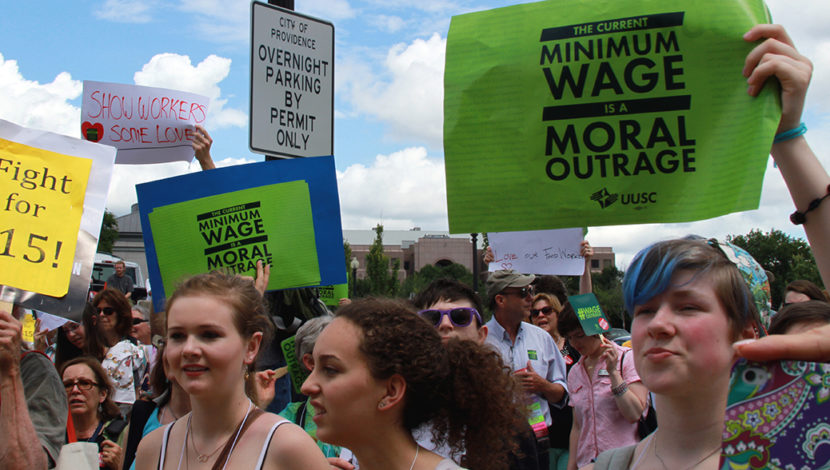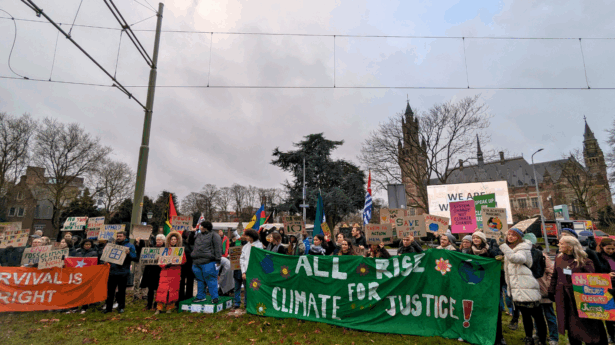The Unitarian Universalist Service Committee advances human rights through grassroots collaborations.
Partner Profile: Philippine Partnership

September 8, 2014
Philippine Partnership for the Development of Human Resources in Rural Areas
Living through the hardships of everyday life can be traumatic, especially when you’re someone on the margins of society — making do with scarce resources, struggling to make your voice heard, surviving systemic injustice. Living through a disaster like Typhoon Haiyan, and the many forms of destruction it brings, only compounds that trauma. The Philippine Partnership for the Development of Human Resources in Rural Areas (PhilDHRRA), a new UUSC partner, is committed to helping people navigate and heal that trauma using techniques pioneered — and proven effective throughout the world — by the Trauma Resource Institute (TRI), another UUSC partner.
An extensive network of 65 nongovernmental organizations, PhilDHRRA models sustainable development in rural communities throughout the Philippines. In addition, the network is active in policy advocacy on social development and human rights issues. A natural match for UUSC, PhilDHRRA has a vision for society that is “characterized by inclusive and participatory democracy, equality, cultural autonomy, economic prosperity, and national sovereignty.” They work toward this vision with a special focus on populations that are too often excluded and ignored: women, low-income people, and indigenous peoples.
Now, with UUSC’s support, PhilDHRRA is launching a new organization: the Philippine Association of CRM Skills Trainers (PhilACTS). CRM refers to TRI’s Community Resiliency Model, which offers a set of accessible body-based skills to heal trauma, a vital step in recovering from disaster that is often ignored or overlooked. The founding of PhilACTS builds on two CRM train-the- trainer workshops that UUSC and TRI conducted in early 2014 (in Cebu City and Tacloban City) with a group of 35 social workers, community development professionals, and human rights advocates.
Chara Itoka, UUSC’s associate director for program and partner support, explains why this partnership is so exciting: “Our support has created a ripple effect that led to CRM extending throughout civil society to train thousands of people in over 50 communities. Our PhilDHRRA partnership has influenced the adoption of CRM by the Department of Social Welfare and Development and local government.”
Over the next year, UUSC will work with PhilDHRRA through PhilACTS to support CRM practitioners, expand the provision of CRM services to people throughout the Philippines (particularly people who are overlooked by other recovery efforts, such as widows and children), and document CRM experiences and results. In addition, PhilACTS will use evidence gathered to continue advocating for adoption of the trauma resiliency trainings at the national level with the Department of Social Welfare and Development.
The institutional support that PhilACTS will provide to CRM trainers is invaluable; it will offer them the opportunity to regularly meet, assess their experiences, and continuously work together to improve their skills, widen their reach, and deepen their impact. The project is expected to indirectly benefit at least 1,500 people within the year.

